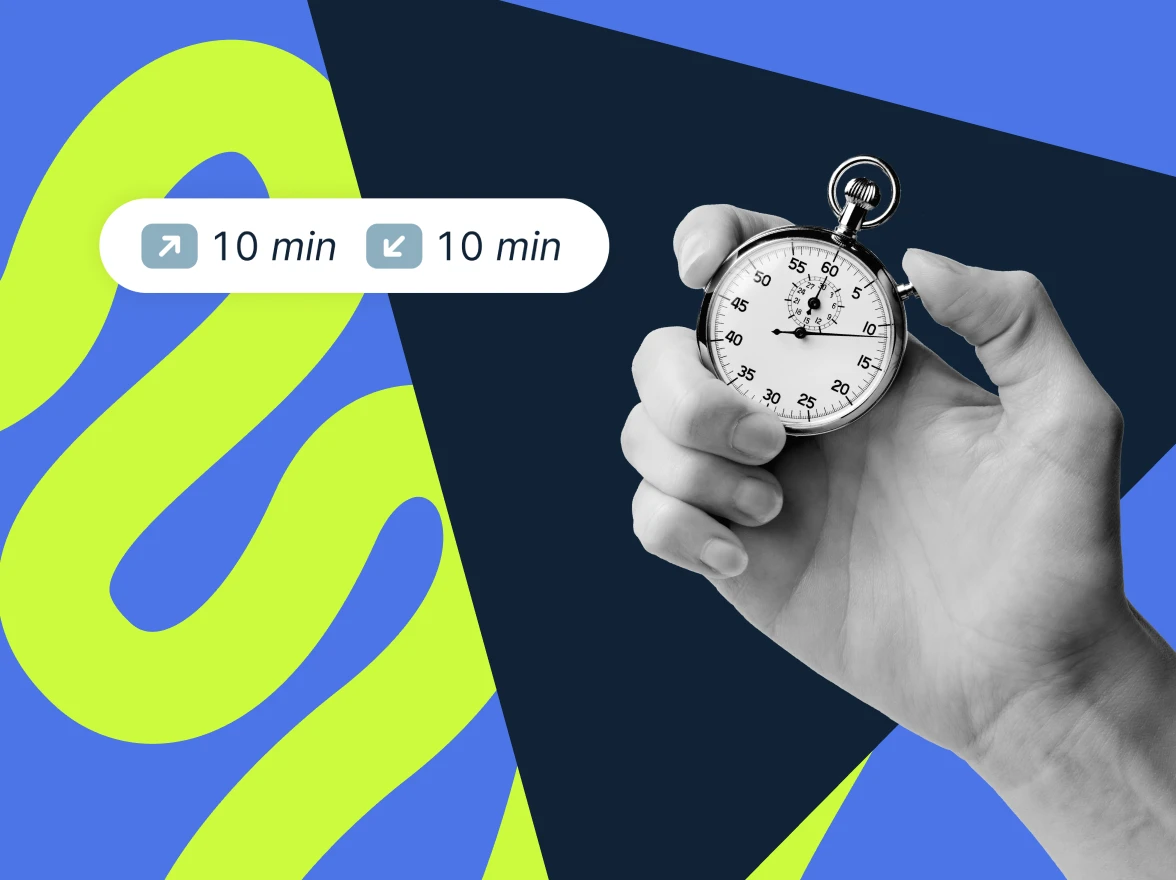In the world of call centers, one crucial metric that holds significant importance is the call abandonment rate. It serves as an indicator of customer satisfaction, operational efficiency, and overall performance. In this article, we will delve into the concept of call abandonment rate, its significance, how to calculate it, reasons behind abandoned calls, industry standards, key performance indicators (KPIs) affecting the rate, and actionable tips to improve it.
What is an abandonment rate?
An abandonment rate, in general, represents the percentage of individuals who leave a process or activity before its completion. In the context of call centers, it specifically refers to the percentage of callers who hang up or disconnect a call before connecting with a live agent.
What is a call abandonment rate?
The call abandonment rate measures the number of abandoned calls compared to the total number of calls received by a call center. It is a vital metric that provides insights into customer experience, agent availability, call center efficiency, and the effectiveness of service delivery.
Why is it important to monitor call abandonment rate in call centers?
- Customer dissatisfaction: High call abandonment rates indicate a dissatisfied customer base, highlighting potential issues in service quality or wait times.
- Lost business opportunities: Abandoned calls mean missed opportunities to address customer inquiries, resolve issues, and potentially convert leads into customers.
- Operational efficiency: Monitoring the abandonment rate helps identify bottlenecks in call center operations, such as insufficient staffing or inadequate call routing strategies.
- Cost implications: Abandoned calls result in wasted resources and lost productivity, impacting the overall cost-effectiveness of the call center.
- Performance benchmarking: Tracking call abandonment rates allows call centers to compare their performance against industry standards and competitors, fostering continuous improvement.
How to calculate call abandonment rate
- Identify the time frame: Determine the specific period for which you want to calculate the abandonment rate (e.g., a day, a week, a month).
- Obtain data: Collect the total number of incoming calls during the chosen time frame and the number of abandoned calls within the same period.
- Calculate the abandonment rate: Divide the number of abandoned calls by the total number of incoming calls and multiply by 100 to get the abandonment rate percentage.
The reasons why phone calls are abandoned in call centers
When running a call center, having phone calls get abandoned can be frustrating. Here are a few reasons why that might happen:
- Long wait times: Customers may hang up if the waiting period to connect with an agent exceeds their patience threshold.
- Ineffective IVR systems: Poorly designed or confusing Interactive Voice Response (IVR) menus can frustrate callers and lead to abandonment.
- Inadequate staffing: Insufficient agent availability can cause excessive hold times, leading customers to abandon their calls.
- Lack of resolution: If customers perceive that their issues won’t be resolved or they have to navigate through multiple transfers, they may choose to abandon the call.
Industry standard of call center abandon rate
According to industry sources, the average call abandonment rate varies depending on the sector and call center type. For example, inbound call centers typically aim for an abandonment rate of 5% or less, while outbound sales centers may have higher rates due to different operational objectives:
| Industry | Call Abandonment Rate (% of calls) |
|---|---|
| Government/Public Sector | 7.44 |
| Healthcare | 7.4 |
| Transportation/Logistics | 6.91 |
| Hospitality | 5.81 |
| Consumer and Professional Services | 6.59 |
What KPIs affect a high abandonment rate in call centers?
Different KPIs can cause different abandonment rates. Here are a few to keep in mind:
- Average Speed of Answer (ASA): The time it takes for a call to be answered by an agent.
- Service Level Agreement (SLA): The percentage of calls answered within a specified time frame.
- Agent Occupancy: The percentage of time agents are actively engaged in calls or other productive activities.
- First Call Resolution (FCR): The ability to resolve customer issues in a single call.
- Call Volume Forecasting: Accurate prediction of call volumes to ensure adequate staffing levels.
How to Improve Call Abandonment Rate
Optimize call routing
Implement intelligent call routing systems to ensure calls are directed to the most appropriate agents, minimizing wait times and increasing the chances of call resolution.
Enhance IVR menus
Streamline and simplify IVR menus to provide clear and concise options for callers, reducing frustration and improving the overall customer experience.
Monitor and manage staffing levels
Regularly analyze call volume patterns and adjust staffing levels accordingly to ensure an optimal balance between agent availability and call demand.
Provide self-service options
Offer self-service channels such as FAQs, online knowledge bases, or chatbots to empower customers with quick and convenient solutions without the need for a phone call.
Implement callback options
Introduce callback features that allow customers to request a call back instead of waiting on hold, ensuring their concerns are addressed while minimizing abandonment rates.
Continuous agent training
Invest in ongoing training programs for agents to enhance their product knowledge, problem-solving skills, and communication abilities, enabling them to handle calls more efficiently.
Measure and track call metrics
Regularly review and analyze call center data, including call abandonment rates, to identify trends, patterns, and areas for improvement.
Enhance technology infrastructure
Upgrade call center technology and infrastructure to support seamless call handling, reduce hold times, and improve overall efficiency.
Improve the customer experience by reducing your call abandonment rates
By diligently monitoring and taking proactive measures to reduce call abandonment rates, call centers can significantly enhance the customer experience. Lower abandonment rates lead to improved customer satisfaction, increased customer loyalty, and higher chances of resolving issues in a timely manner.




























